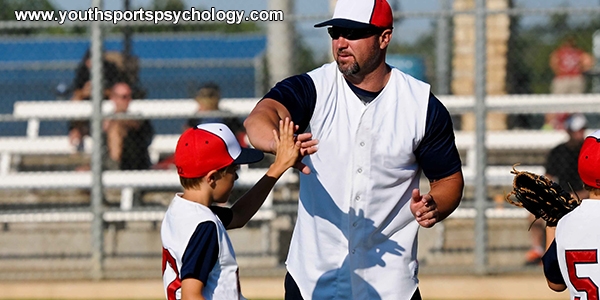
The Importance of Game Plans
Game plans are blueprints for performing well or beating competitors during competition–and they’re only helpful if kids put them into action during games or competition.
For example, in football, young athletes’ plan may be to identify the style of defense they’ll play during different game situations.
In gymnastics, for example, a young athlete’s game plan may be to choose a particular routine to perform for each event.
In swimming, sports kids might design game plans focusing on their splits for a race.
In tennis, kids may plan on how to take advantage of their opponents’ weaknesses.
Young athletes need to do more than just create game plans. They need to focus on their plans, which can be tricky during competitions. That’s because athletes, during a tough game or competition, tend to focus on what their opponents are doing, rather than on their own performance.
When this happens, kids under-perform. They hand their opponents an advantage by taking the focus off their own skills and plans.
Professional tennis player Daniil Medvedev knows what happens when athletes stop concentrating on their plans.
Medvedev lost his focus when playing future Hall of Famer Rafael Nadal at the 2018 Rogers Cup in Montreal. Nadal dominated Medvedev throughout the match winning 6-3, 6-0.
Even though he had a game plan, Medvedev was too focused on “who he was playing” instead of “what he should be doing.”
“You speak with your coach, you understand your plan but you go out there and it doesn’t work because it’s [Rafeal Nadal]. [Nadal] kills your entire plan. In Montreal, I may not have been prepared mentally. It was terribly windy, which usually bothers Rafa but that day it could not help. The match was not close,” said Medvedev.
Worrying about the competition hurts kids’ focus and performance.
Concentrating on the importance of the game or competition also undermines their performance.
In order for kids to perform well, they need to focus on themselves–and their game plans.
In order for kids to compete at their best, they need to keep the focus on themselves and their plans.
How Do Young Athletes Put a Game Plan Into Action
First, kids should create a plan. It could take advantage of their strengths, or their opponents’ weaknesses, or both.
What’s most important is developing a strategy that kids can focus on.
Next, kids should break down the game plan into specific objectives before the game.
And of course, they need a Plan B just in case Plan A doesn’t work. It’s important for kids to be flexible and go with the flow. They shouldn’t get stuck trying too hard to implement a plan that’s not helping them perform well.
Remind your young athletes: They need to create a plan, focus on implementing it, and be ready to switch plans if their first game plan doesn’t help them feel successful.
With a plan or two under their belts, they’re more likely to focus, feel confident and perform well!
Related Articles on Kids’ Mental Game:
- Teaching Sports Kids Pregame Plans
- Playing Through Adversity
- How to Get Kids Mentally Ready For Competing
*Subscribe to The Sports Psychology Podcast on iTunes
*Subscribe to The Sports Psychology Podcast on Spotify
Improve Your Mental Game From Anywhere In The World

We’re certain that, as a parent, you want to help your child develop confidence and discipline in sports and life. And as a sports parent, you’d love for your children to reach their potential in sports. But encouraging your child to strive for greatness without pressuring them can be a challenge.
You can get expert mental coaching with us from anywhere. Meet with us via Zoom, Skype, FaceTime or phone call. With today’s video technology, we are able to connect with athletes and coaches all over the globe.
Call Us Today to Schedule Your Free 15-Minute Session.
Find Out How Your Athlete Can Benefit From One-on-One Mental Coaching!
